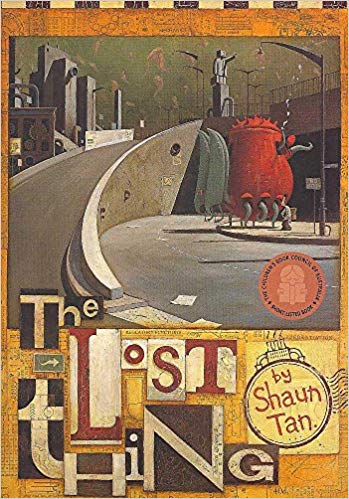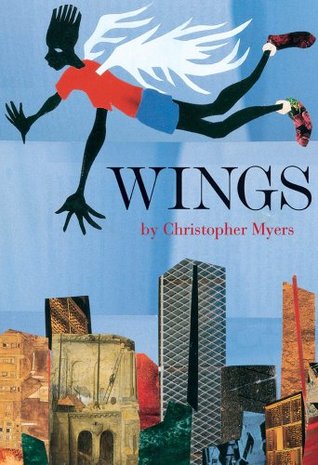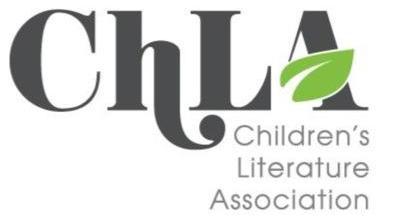2020 Phoenix Picture Book Award Recipients
2020 Phoenix Picture Book Award Winner:
 The Lost Thing by Shaun Tan
The Lost Thing by Shaun Tan
Sydney: Hachette, 2000
Strangeness and melancholy take center stage in this story about a lost, anthropomorphized thing and the narrator’s quest to find where it belongs. The story’s meanings are as open to interpretation as its characters’ identities, and Tan unites different styles and techniques to defy easy artistic and genre categorizations. The panel illustrations, embedded within a background of technical writing and charts, create a detached, other worldly feeling, and yet the characters and settings are disconcertingly recognizable. The simple text, also isolated from the background design and illustrations by text boxes, does very little to lessen the story’s mysteries. The short, direct narration and the deliberately cluttered, beautifully rendered pages only help to emphasize the rarity of true connection in a world (and book) so full of information, images, and questions that it can be hard to figure out where to direct one’s attention or to avoid disengaging. The interaction between the detailed images and the stark text also show the challenges of resisting conformity and remembering to see and support the seemingly invisible among us.
2020 Phoenix Picture Book Honor Recipient:
Wings by Christopher Myers
New York: Scholastic, 2000
With this book, Christopher Myers powerfully demonstrates that classic mythology can be used as a living, changing resource rather than as a dried and preserved artifact. Wings is based on the Greek myth of Icarus, the boy who foolishly flew too near the sun and died as a result. Myers’s Ikarus is brought down not by melting wax, but by society’s rejection of anyone who seems unusual. Other children laugh at him; teachers complain that his very presence is distracting; a police officer orders him to stop flying immediately. “Could the policeman put him in jail just for being different,” wonders the narrator. In the end, the narrator finds the courage to speak up and say what she really thinks: “Your flying is beautiful!” Myers therefore encourages readers to look at differences between people as interesting and exciting rather than threatening. Wings combines collage and paint to make colorful, vibrant illustrations that may appear simple at first glance but are rich in meaning and add nuance to the text. In one picture, an unhappy Ikarus sits hunched against a background that suggests fire while his laughing peers are silhouetted against what looks like a blizzard. By connecting Ikarus and a burning heat, Myers thus invokes the Greek myth, but he also emphasizes the power and destructiveness of social convention.
